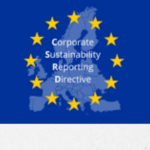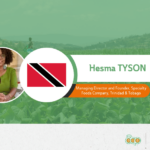News from African countries
- 10/04/2020
- Posted by: Gaetan Dermien
- Category: Uncategorized
Since 30 March, part of southern Benin has been under partial containment. From 8 April, the authorities made it compulsory to wear masks in all public places in the 12 towns of the cordon sanitaire. However, only a third of the 30 million masks ordered by the state have been delivered so far. The interior minister has invited those who do not have masks to stay at home and has deployed the police for strict control.
Wearing a mask is now mandatory and a massive testing campaign has been launched.
New measures have been taken, such as the closure of all sports venues and walking trails. A large-scale testing campaign has been launched for health workers and the private sector. The government may launch mass testing in the four most affected regions. The population is encouraged to wear a mask.
Okisegere Ojepat, CEO of the Fresh Produce Consortium of Kenya (FPC-Kenya), has stated that as Europe has now loosened its import requirements on fresh fruit and vegetables in order to draw more supplies, Kenya, as the biggest horticultural exporter in Africa, should rise to this rallying call to rebuild the food chain (Source: Farmers Review Africa, 6 April).
Wearing a mask has been mandatory since 6 April in regions affected by the virus. However, the masks are out of stock and their price is rising. For the past 15 days, all means of transport (bush taxis and planes) have been at a standstill to limit movement of people on the island as far as possible. But since 7 April people far from home have been allowed to return to their home town using passenger transport. This is a worrying situation, as the authorities, who had planned to take temperature samples from each traveller, have been overwhelmed by the scale of the influx.
As of 7 April, the wearing of masks became compulsory for all those authorised to leave their homes. The country officially has a production capacity of 3.3 million masks per day, which should double within a week, making the price affordable. Morocco has been one of the African countries to react quickly by ordering numerous screening tests, and a hospital assistance fund has been created.
Schools have been closed since 18 March, and measures include a full lockdown with non-essential service providers required to stay at home for the first 14 days of April. The government has followed the lockdown measures with some social protection interventions (e.g. providing food rations) targeting workers in the informal sector, who can no longer receive a daily income.
On 5 April, it was decided to extend the state of emergency for 30 days. The curfew remains in effect from 8 p.m. to 6 a.m. Eight out of 14 regions are affected by the epidemic.
The Chamber of Commerce and Industry of Togo has set up a questionnaire to measure the impact of COVID-19 on companies’ activities. Already some companies have stopped their activities while others have put their staff out of work. On 1 April, the President of the Republic announced the setting up of a 400 billion CFA franc Recovery and Solidarity Fund, which will be fed by the State, international donors, and the national and international private sector. It will support vulnerable households, craftsmen and enterprises. For the latter, fiscal and financial measures (loan repayment arrangements) are also being taken. Measures to support agricultural activities and food supplies are also being announced during the three-month state of emergency.


![EU and GB approval changes (August-November 2024) 9-FFM+-[ENG]](https://news.colead.link/wp-content/uploads/2024/06/9-FFM-ENG-150x150.jpg)
